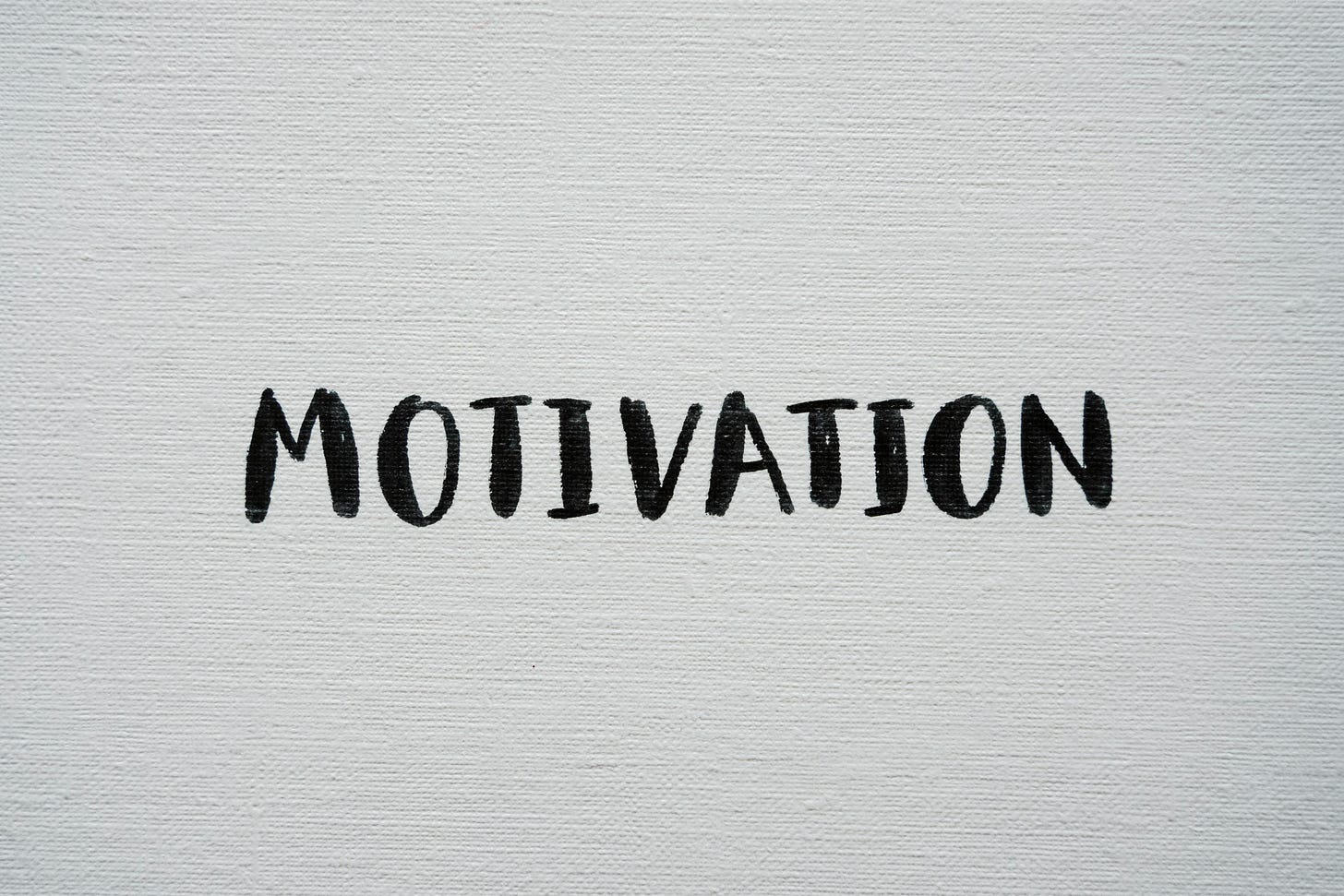Why Motivation Is Totally Overrated
4 ways to make good habits easier (because that's what actually works)
The promise of January 1st is powerful: it represents a clean slate, a chance to transform into our ideal selves. Whether it's completing that first marathon or mastering a new language, the new year beckons with possibility.
However, the reality of habit formation tells a different story. Recent data from Forbes shows that nearly half (44%) of Americans drop their resolutions within three months, with only 6% maintaining them past a year. British studies echo this trend - 17% abandon their goals within 30 days, and just 11% persist through the year.
While these findings might seem discouraging, they reveal an important truth about behavior change. Most of us have bought into the idea that success hinges on motivation - that feel-good energy that drives us toward positive change. But what if this common belief is actually the barrier holding us back?
The Motivation Myth: Why Willpower Isn't the Answer
Let's be honest: motivation is unreliable and we've been putting too much faith in motivation as the primary driver of behavior change.
Enter behavioral scientist BJ Fogg's B=MAP framework, which offers a refreshingly different perspective. According to Fogg, behavior (B) happens when three elements converge: motivation (M), ability (A), and a prompt (P). The breakthrough insight?
Motivation is just one piece of the puzzle, and often it’s not even the most important one!
The Power of Making Things Easier
Here's where things get interesting – and empowering. Fogg's research shows that making a behavior easier to do (increasing ability) is often more effective than trying to pump up your motivation. Think about it: which is more likely to succeed?
Motivating yourself to do a 60-minute workout when you're already exhausted, or
Making it ridiculously easy to do a 5-minute movement session in your living room
The second option wins every time. When we reduce the effort required (what Fogg calls increasing ability), we need less motivation to get started. This is why leaving your workout clothes by your bed works better than relying on magical morning motivation.
The Secret Sauce: Strategic Prompts
Remember those times when you automatically reached for your phone first thing in the morning, without even thinking about it? That's the power of prompts – triggers that remind us to perform a behavior at the right moment. The beauty of prompts is that they work regardless of how motivated you feel.
Some examples of effective prompts:
Placing your meditation cushion on your chair before bed
Setting a specific water bottle on your desk as a reminder to hydrate
Using your morning coffee routine as a trigger for journaling
The key is to choose prompts that naturally fit into your existing routine and appear at the moment when you can actually perform the behavior.
Making It Work: Your Action Plan for Lasting Change
So how do we put this all together? Instead of waiting for motivation to strike, focus on these more reliable strategies:
1. Shrink the Change
Make the desired behavior so small it feels almost laughably easy. Want to start a yoga practice? Begin with just one sun salutation. Looking to eat more vegetables? Add just one extra serving to whatever you're already eating.
2. Remove Friction
Look for ways to make your desired behavior easier. Want to read more? Keep a book on your nightstand instead of your phone. Trying to eat healthier? Pre-cut vegetables on Sunday so they're ready to grab all week.
3. Design Your Environment
Set up your space to support your goals. Create a designated meditation corner. Pack your gym bag the night before. Put healthy snacks at eye level in your fridge.
The Liberation of Letting Go of Motivation
Here's the most liberating part: once you stop relying on motivation, you'll actually feel more empowered. Instead of waiting to "feel like it," you can focus on creating systems that work even on your worst days.
Remember, the goal isn't to become some superhuman who's always motivated. The goal is to build a life where healthy behaviors feel natural and doable, regardless of your motivation level on any given day.
Your Next Step
Start small: choose one behavior you've been struggling with and ask yourself:
How could I make this easier?
What natural prompt could I use?
How can I shrink it down to make it more doable?
The answer might surprise you – and it probably won't have anything to do with motivation.
By focusing on ability and prompts instead of motivation, you're not just setting yourself up for success – you're creating a sustainable approach to behavior change that works with your life, not against it.



